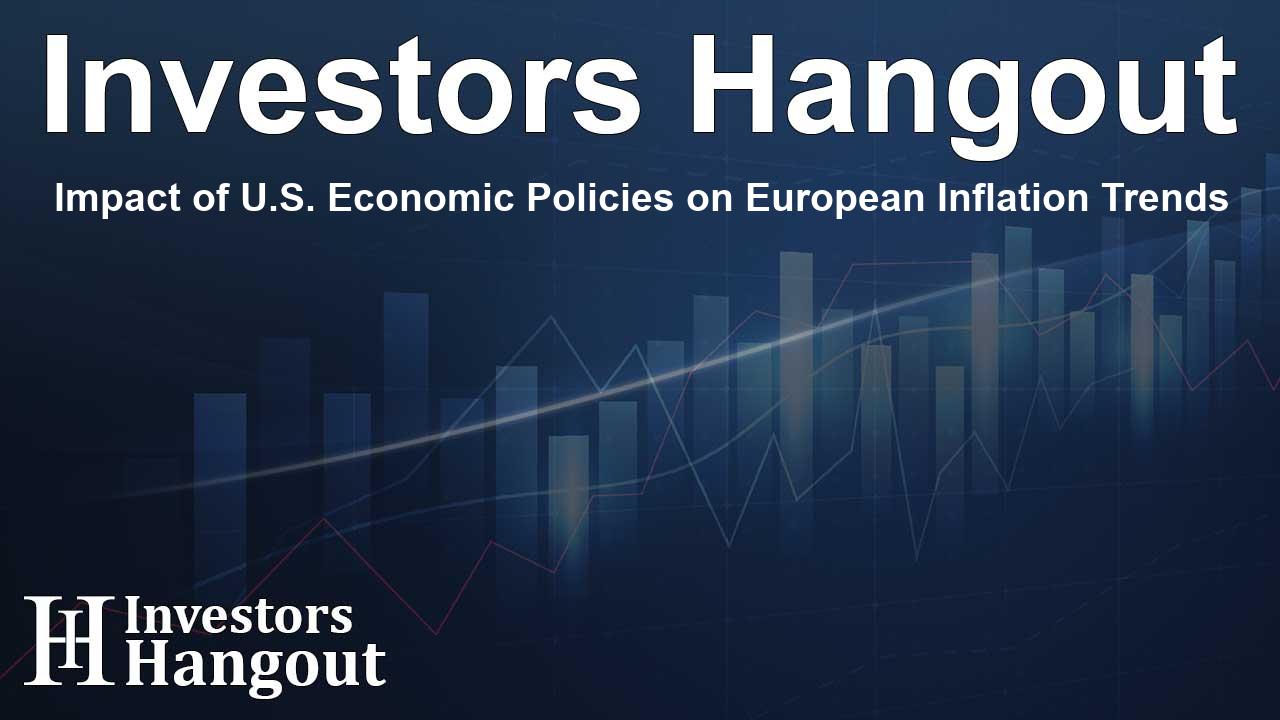Impact of U.S. Economic Policies on European Inflation Trends

Impact of U.S. Economic Policies on European Inflation Trends
The economic landscape in Europe is often influenced by policies enacted across the Atlantic. Recently, ECB policymaker Francois Villeroy de Galhau provided insights into how the recent U.S. administration's economic strategies might play out, particularly concerning inflation in Europe.
Limited Effects on European Inflation
During a recent investor conference, Villeroy highlighted that while the new Trump administration's policies might cause some ripples, their impact on European inflation is expected to be minimal. He emphasized that the inflationary effects stemming from these U.S. policies are not likely to resonate strongly within the European economy.
Concerns Over Long-term Interest Rates
On the other hand, Villeroy pointed out that long-term interest rates in Europe could see more significant changes. The actions taken in the U.S., such as hiking tariffs and cutting taxes, could contribute to rising inflation within the U.S., inevitably affecting interest rates globally.
Effects on the World Economy
Villeroy expressed his concerns regarding the broader implications of these economic strategies on global economic stability. He noted how Trump's plans could increase risks for the global economy, further influencing growth not just in the U.S. but also in Europe.
Short-term vs. Long-term Implications
While he does not foresee drastic changes to European short-term interest rates due to these policies, he cautioned that the long-term landscape might differ. Variations in U.S. long-term rates could create a transition effect, leading to adjustments in Europe.
Conclusion
In summary, the intricate relationship between U.S. economic policies and European inflation reflects a complex web of influence. While immediate effects may be limited, the long-term outlook remains uncertain, prompting European policymakers to remain vigilant.
Frequently Asked Questions
What did ECB's Villeroy say about U.S. policies?
He indicated that the impact of U.S. economic policies on European inflation would be relatively limited.
How might U.S. economic policies affect Europe?
While inflation effects might be limited, long-term interest rates in Europe could be influenced by changes in U.S. rates.
What are the concerns regarding the world economy?
Villeroy highlighted that tariffs and tax cuts could increase risks globally, affecting growth in the U.S. and abroad.
Will short-term interest rates in Europe change?
Villeroy does not expect significant changes in European short-term interest rates due to U.S. policy shifts.
What is the overall outlook for European inflation?
The overall outlook suggests that European inflation will remain stable despite U.S. policy changes, with potential long-term adjustments.
About Investors Hangout
Investors Hangout is a leading online stock forum for financial discussion and learning, offering a wide range of free tools and resources. It draws in traders of all levels, who exchange market knowledge, investigate trading tactics, and keep an eye on industry developments in real time. Featuring financial articles, stock message boards, quotes, charts, company profiles, and live news updates. Through cooperative learning and a wealth of informational resources, it helps users from novices creating their first portfolios to experts honing their techniques. Join Investors Hangout today: https://investorshangout.com/
Disclaimer: The content of this article is solely for general informational purposes only; it does not represent legal, financial, or investment advice. Investors Hangout does not offer financial advice; the author is not a licensed financial advisor. Consult a qualified advisor before making any financial or investment decisions based on this article. The author's interpretation of publicly available data shapes the opinions presented here; as a result, they should not be taken as advice to purchase, sell, or hold any securities mentioned or any other investments. The author does not guarantee the accuracy, completeness, or timeliness of any material, providing it "as is." Information and market conditions may change; past performance is not indicative of future outcomes. If any of the material offered here is inaccurate, please contact us for corrections.